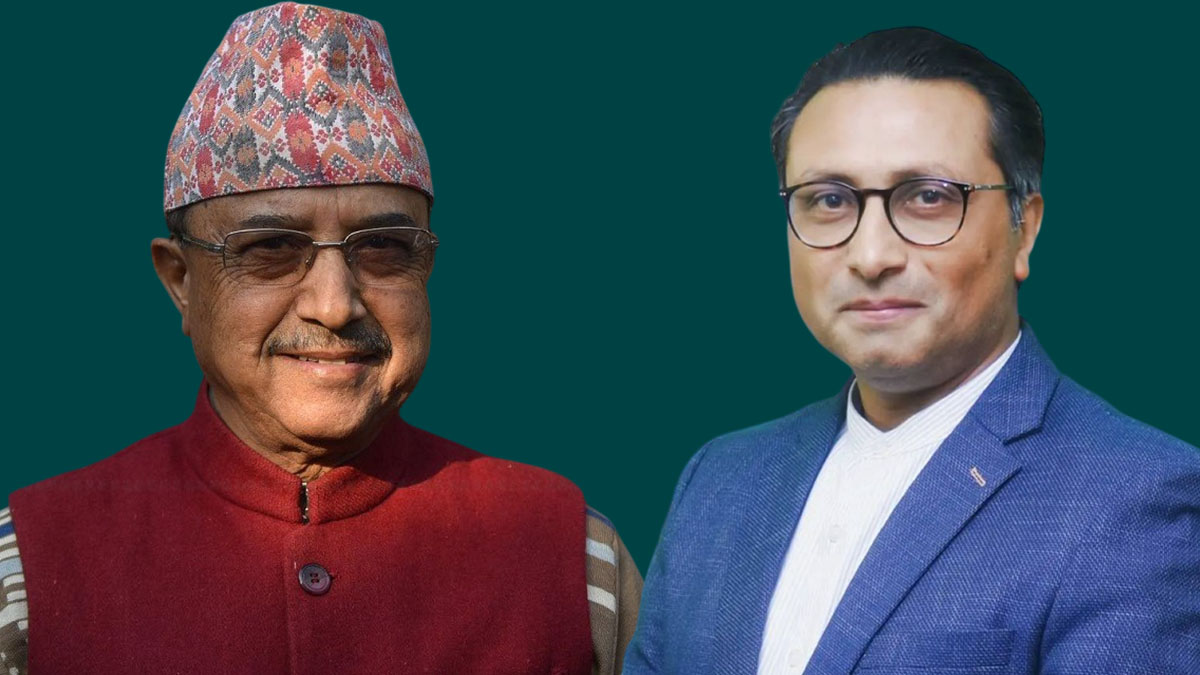The visit visa issue has continuously disrupted House of Representatives meetings.
The main opposition CPN (Maoist Center) and other opposition parties including the Rastriya Swatantra Party (RSP), Rastriya Prajatantra Party (RPP), and CPN (Unified Socialist) have been obstructing Parliament, demanding the resignation of Home Minister Ramesh Lekhak and the formation of an investigation committee on the visit visa issue.
The House of Representatives meeting on Monday was adjourned for half an hour due to the opposition's obstruction.
Parties have also been taking initiatives to resolve the deadlock in Parliament. Speaker Devraj Ghimire said that the meeting was adjourned for half an hour as leaders were making efforts to reach a consensus.
Meanwhile, the RSP has proposed some points to Nepali Congress for an agreement.
1. The government will fully cooperate with and facilitate the ongoing investigation by the Commission for the Investigation of Abuse of Authority (CIAA) into corruption-related activities at the Tribhuvan International Airport Immigration Office without interference.
2. Without encroaching on the CIAA’s constitutional jurisdiction, a high-level investigation committee will be formed within five days to conduct a comprehensive and multi-dimensional investigation into the suspected involvement of government mechanisms, travel agencies, manpower companies, airlines, and Nepali and foreign missions in human trafficking and organized crime under the guise of visit visas over the past few years. This committee will also function as a legislative oversight group, comprising lawmakers from all parties, to monitor government commitments submitted through the prime minister with a timeline.
3. An executive committee will be formed within one day to determine the investigation committee’s scope, structure, management, and authority. The executive committee will prepare the committee’s procedures within five days and establish the committee.
4. The investigation committee will focus on transparent, fact-based, and time-bound investigations in effective coordination with the Department of Immigration under the Home Ministry, Nepal Police, Ministry of Foreign Affairs, Civil Aviation Authority, and other agencies concerned.
Additionally, the RSP has proposed the following:
1. Identification and analysis of policy and systemic weaknesses (related to visit visas, labor permits, immigration, etc.).
2. Study and investigation of illegal networks of individuals and organizations involved in human trafficking and organized crime.
3. Recommendations for administrative and judicial systems to protect victims and ensure victim-friendly rehabilitation.
4. Suggestions for improving inter-agency coordination and collaboration.
5. Decision on the home minister’s resignation seeking political and administrative accountability and responsibility.
6. Adoption of high standards of transparency while forming the investigation committee, conducting the investigation, and publicizing the investigation report.
The RSP has said in its proposal to the NC that as the objective of the agreement letter is to restore public trust by strengthening good governance, accountability, and judicial process in the country, all state organs will express commitment to work together on such sensitive issues.
Earlier on Monday, leaders of the NC and RSP held a discussion in a bid to resolve the House impasse.
NC Vice-president Purna Bahadur Khadka, Chief Whip Shyam Kumar Ghimire, and lawmaker Gyanendra Bahadur Karki, and RSP Vice-president Swarnim Wagle, Chief Whip Santosh Pariyar, and lawmaker Shishir Khanal took part in the discussion.
During the discussion, the NC asked the RSP for a draft proposal for consensus, following which the RSP submitted the draft.

